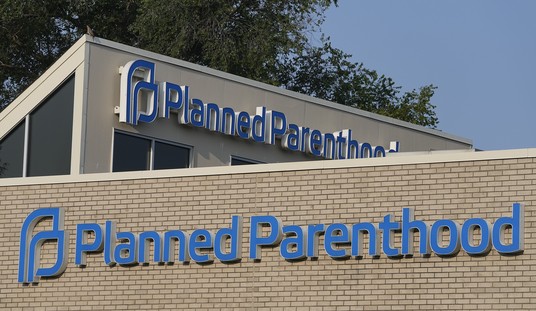In the first midterm election in the Trump era, voters sent a decidedly mixed message on health care. In some states, voters approved ballot initiatives to expand Medicaid and elected candidates supporting Sen. Bernie Sanders’ (I-VT) “Medicare for All” plan. However, in other states, voters elected candidates opposed to Medicare for All and voted against growing the size of Medicaid.
Exit polls show 40 percent of voters cited health care as their No. 1 issue. Yet the latest results—not to mention several other recent electoral outcomes—demonstrate Americans remain extremely divided as to what direction the country should move on health care policy.
The United States is clearly at a health care policy crossroads. One path, promoted by liberals, entails more federal government intrusion, which will eventually force all Americans into a one-size-fits-all government-run system. Another path, favored by conservatives, embraces federalism and freedom, which would allow individuals to choose the type of health insurance best suited to their unique needs.
As pundits digest the midterm results and political ramifications, one must wonder: Which health care policy path is the nation more likely to take over the next two years?
In 2019, the newly elected 116th Congress will be sworn into office. Democrats will represent the majority in the House of Representatives, and Republicans will expand its majority in the Senate. The divided legislature virtually ensures that no substantial health care legislation will be passed at the federal level in the foreseeable future.
However, that does not mean that the country will remain at a standstill in terms of health care policy. State lawmakers have many options they can use to forge a path toward greater health care freedom and access—options that have only been made possible because of the Trump administration’s commitment to improving health care through various executive reforms.
Recommended
For instance, the Centers for Medicare and Medicaid Services (CMS) recently released a new guidance that will overhaul Obama-era regulations that have severely limited states seeking to reform Obamacare health insurance guidelines.
According to CMS, “Section 1332 of the Affordable Care Act (ACA) permits a state to apply for a State Innovation Waiver (now also referred to as a State Relief and Empowerment Waiver) to pursue innovative strategies for providing their residents with access to high quality, affordable health insurance while retaining the basic protections of the ACA.”
The Obama guidance imposed several requirements and restrictions on states seeking a Section 1332 waiver, undermining the opportunity for states to implement real and lasting reforms to Obamacare.
Fortunately, the Trump administration envisions states as the Founding Fathers did, as laboratories of democracy. In that spirit, CMS has replaced the Obama-era State Innovation Waivers with State Relief and Empowerment Waivers (SREW). According to Trump’s CMS, SREWs will:
· Expand access to affordable health insurance: “Section 1332 [waivers] should foster health coverage through competitive private coverage, including AHPs and STLDI plans, over public programs.”
· Decrease regulations: “States should consider eliminating or reducing state-level regulation (CON laws, Scope of Practice, DPC) that limits market choice and competition in order to reduce prices.”
· Foster state innovation: States should “innovate to the maximum extent possible under the law.”
· Support and empower those in need: States should support those with “low incomes or high expected health care costs” with financial assistance.
· Promote consumer-driven healthcare: States should “empower Americans to make informed choices about their health coverage and health care with incentives that encourage consumers to seek value.”
Alongside SREW, the Trump administration is also permitting states to reduce, not expand, their Medicaid programs. In January, CMS announced “a new policy designed to assist states in their efforts to improve Medicaid enrollee health and well-being through incentivizing work and community engagement among non-elderly, non-pregnant adult Medicaid beneficiaries who are eligible for Medicaid on a basis other than disability.”
To date, CMS has approved four waivers—Arkansas, Indiana, Kentucky, and Wisconsin—for Medicaid work requirements. Additionally, nine states have Medicaid work requirement waiver requests pending at CMS.
In addition to work requirements, the Trump administration is encouraging states to pass other common-sense Medicaid reforms, such as eligibility and enrollment restrictions, benefit restrictions, copays, and healthy behaviors.
Although the mainstream media and progressive politicians falsely portray Medicare for All in glowing terms, the overwhelming evidence shows that government-run health care means lower quality, less accessible health care for all. Fortunately, President Trump and his administration are dedicated to keeping the United States on the proper health care policy path by allowing states and individuals—not the federal government— the ability to determine what health care works best for them.
Chris Talgo (ctalgo@heartland.org) is an editor at The Heartland Institute.

























Join the conversation as a VIP Member